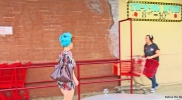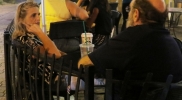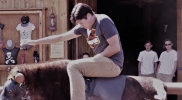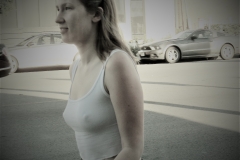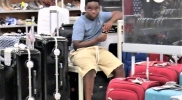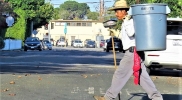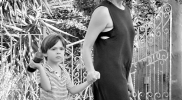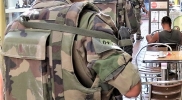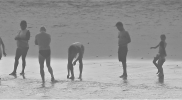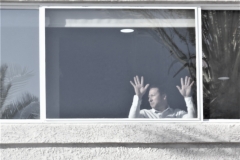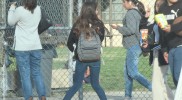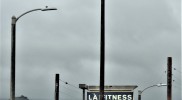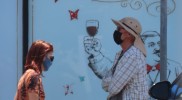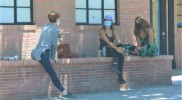|
|
Best Trivia - The Media
|
Favorite Trivia – THE MEDIA & PUBLISHING
|
| “We ran some fascinating letters by the man charged with the Soham murders, Ian Huntley, today, about his girlfriend Maxine Carr, his life in prison and his thoughts on his trial. Newspapers often run letters from notorious killers, and the reason is simple. Most of them have sharp reporters who send cold letters to these people in jail. Men like Huntley have loads of ‘pen-pals,’ and plenty of time to keep up the correspondence. What they don’t know is ‘Letitia from Eastbourne’ is more likely to be ‘Dennis from the Sun.’”
Piers Morgan (The Insider)
|
| “I explain the essentials of propaganda to the press conference yet again. . . One must constantly be repeating the same thing in different forms. The public is basically very conservative. It must be thoroughly saturated with views by constant repetition. Until the message sticks. Only then can one be sure of success.” [January 3, 1940]
The Goebbels Diaries: 1939-1941 – Joseph Goebbels
|
| “The rule in carving holds good as to criticism; never cut with a knife what you can cut with a spoon.”
Charles Buxton
|
| “I don’t like the guys on MSNBC or Fox, it’s all soapbox—they preach to the choir. I don’t learn anything. I want to learn something when I watch a show. If I click in on ‘Hannity,’ I don’t learn anything. He’s just spewing venom. And that’s not my style of broadcasting, never was.”
Larry King interview (Robert Lloyd) – Los Angeles Times, April 26, 2018
|
| “I used to read reader reviews on Amazon and Goodreads, and I would read them because I wanted to read the good stuff, but then I would inevitably read the bad stuff, and it would make me feel really awful. It became an exercise in ego lifting or ego bashing, and it was ultimately for nothing. It wasn’t something I could respond to or address. So, I just stopped reading them completely, and that felt much better.’
Alysia Abbott – Fairyland, A Memoir of My Father (Melanie Brooks – Writing Hard Stories)
|
| “On my first night here [St. Pancras Hospital having her appendix removed), Ted was able to bring me an exciting air letter from The New Yorker, offering me one of their coveted ‘first reading’ contracts for the next year! This means I have to let them have the first reading of all my poems and only send poems elsewhere if they reject them. I had to laugh, as I send all my poems there first anyway. I get $100 (enclosed) for simply signing the agreement, 25 percent more per poem accepted, plus what they call a ‘cost-of-living’ bonus on work accepted, amounting to about 35 percent more per year, plus a higher base rate of pay for any work they consider of exceptional value. The contracts are renewable each year at their discretion. How’s that! As you may imagine, I’ve been reading and rereading the letter, which came at the most opportunely cheering moment.” [March 1, 1961]
Sylvia Plath – Letters Home: Correspondence 1950-1963, ed. by Aurelia Schober Plath
|
| “If there is anything President Trump has been able to do well since the day he announced his candidacy, it is his ability to get the press to chase the next shiny thing. That is exactly what he’s doing with his suggestion of overriding the 14th Amendment with an executive order, denying citizenship to those born in this country, including the children of people here without authorization. He knows he can’t do it, but it’s red meat for his base and a distraction to the rest of us, especially the press. Yes, he’s the president, but the biggest favor the press can do for this country is to take away his oxygen. In other words, don’t cover the stupid stuff.”
Tim Sunderland, Rancho Cucamonga, Letters to the Editor, Los Angeles Times, October 31, 2018.
|
| Anderson Cooper: “How much of an interview do you try to prepare?”
Piers Morgan: “I like to research very thoroughly. I would hate to have a moment with a guest where they know you don’t know about a key aspect of their life because you haven’t bothered to find out. I think as a journalist, I see it as an absolute prerequisite of the job to be very well briefed. Having said that, I love spontaneity and I think on television, with an interview, you can get some of the best moments from silence or from a ‘Whoa, what did you say?’ Anything that makes it suddenly feel unscripted, that makes it go veering off from what the viewer at home assumes is a nice, cozy setup.
“To me, there are the seven P’s. It’s my brother’s unofficial regimental motto: ‘Prior planning and preparation prevents piss-poor performance.’ And then there’s the three F’s for guests. They’ve got to be fascinating, fun, and fabulous. If you’ve done the seven P’s and you meet the three F’s, you’ve got Emmy-winning stuff.” [December 21, 2010]
Shooting Straight: Guns, Gays, God, and George Clooney – Piers Morgan
|
| “A good interview—you know more than you do before you start. You should come away with maybe some of your opinions changed. You should certainly come away entertained—an interviewer is also an entertainer. I don’t like when people put something down as ‘entertainment.’ We’re all infotainers. The Los Angeles Times has a masthead; like the way it looks on the page. It draws me to the paper. It has nothing to do with information. When you see an interview show you’re entertained, you’re into it. You pay attention to it. And when you come away, you feel better, you know more. I think it’s an art form. I never took any lessons for it. I have my own rules—I don’t ask the wrong questions, I listen to the answers. I don’t have an agenda. I’m not there to embarrass, nor am I there to praise. I’m the conduit, from the interviewee through me to the audiences.”
Larry King interview (Robert Lloyd) – Los Angeles Times, April 26, 2018
|
| “A VF formula that works is beginning to finally suggest itself. Celeb cover to move the newsstand, juicy news narrative like Vicki Morgan, A-list literary piece, visual escapism, revealing political profile, fashion. If we nail each of these per issue it’s gonna work.” [July 12, 1984]
Tina Brown – The Vanity Fair Diaries: 1983-1992
|
| “I came to Newsweek after 5 1/2 years at the University of California at Berkeley. . . At Newsweek I was the house Freako-Doper-Lefty and I was tolerated, later even indulged. . . For the first eight months I was a ‘clipper,’ brandishing my ‘ripstick’ (a yard-long piece of metal with a single-edged razor on one side) at eleven newspapers a day, searching for stories for the Nation department to rewrite at the end of the week.
“In the summer of 1967, Newsweek indirectly bought enough grass and paraphernalia to warrant a felony sentence in New York of from one to 15 years. Only three years behind the times, it was decided to do a cover story on marijuana, and naturally, I was assigned to the story. The cover designer, Bob Engels, uncertain of what he wanted, allowed me to hunt up paraphernalia and other material for a cover photo. I went down to the Lower East Sides’ Psychedelicatessen and purchased two beautiful water pipes, a hash pipe, roach holders, a dozen packets of cigarette papers and a few little psychedelic toys. What a haul! I also bought two ounces of Acapulco Gold and one ounce of Panama Red from my favorite exclusive downtown dealer. Newsweek footed the whole bill without a ripple, and I got the payola of a lifetime. But it didn’t end there. . . both the senior editor and writer of the piece, decided their respective editing and writing would lack verisimilitude unless they tried the stuff.”
Kate Coleman – “Turning on Newsweek” (Paul Krassner’s Pot Stories For The Soul)
|
| “Soon I was sitting at a desk in the Wilmington News-Journal’s scruffy newsroom. . . The stories I most enjoyed reporting were those I sought myself. . . It wasn’t long before I hunted my own stories and worked on them at home. I polished one on the University of Delaware’s involvement in the Vietnam War. When I saw it later, it had been edited with notations in different colored inks. The DuPont family owned the newspaper through a holding company and board members were given opportunities to shape stories to protect their interests; the color of ink secretly identified each commentator.”
Thomas DeBaggio – Losing My Mind: An Intimate Look at Life with Alzheimer’s
|
| “Have been closing Marie Brenner’s terrific piece on Donald and Ivana Trump. We wanted to capture their fascinating repositioning now that they are divorcing and Ivana has been upgraded to superstar victim of a brutish, philandering husband, which she is playing to the hilt. . . Marie has been able to establish such a pattern of lying and loudmouthing in Trump that it’s incredible that he still prospers and gets banks to loan him money Great quote where his brother says Donald was the kid who threw cake at the birthday party. He’s like some monstrous id creation of his father, a cartoon assemblage of all his worst characteristics mixed with the particular excesses of the new media age. And the portrait of Ivana as a Stockholm syndrome enabler, reconstructing her whole face and body to try to win favor, absorbing all his delusions and adding her own striving, desperate pretensions is really great stuff. The revelation that he has a collection of Hitler’s speeches at the office is going to make a lot of news.” [July 2, 1990]
Tina Brown – The Vanity Fair Diaries: 1983-1992
|
| “Soon after I began writing ‘Peep’s Diary,’ an exposé column [Delaware Spectator], Joe [circulation manager] ran into serious trouble. I had written something in Peep’s unflattering to cops. A highly placed officer threatened Joe. He wanted to know who wrote ‘Peep’s Diary.’ It was no secret but the officer reminded Joe that one more driving citation would revoke his license, leaving him with no way to get around. It was unnecessary but emblematic of the way things were done in Wilmington.”
Thomas DeBaggio – Losing My Mind: An Intimate Look at Life with Alzheimer’s
|
| “During our meeting, her [Jacqueline Rose’s] manner was engaging—neither too friendly nor too distant—and on a scale of how people should conduct themselves with journalists I would give her a score of 99. She understood the nature of the transaction—that it was a transaction—and had carefully worked out for herself exactly how much she had to give in order to receive the benefit of the interview.
“In most interviews, both subject and interviewer give more than is necessary. They are always being seduced and distracted by the encounter’s outward resemblance to an ordinary friendly meeting. The meal that is often thrown around it like a cloth, to soften the edges; the habits of chat and banter; the conversational reflexes, whereby questions are obediently answered and silences too quickly filled—all these inexorably pull the interlocutors away from their respective desires and goals.
“However, Rose never—or almost never—forgot, or let me forget, that we were not two women having a friendly conversation over a cup of tea and a box of biscuits but participants in a special, artificial exercise of subtle influence and counterinfluence, with an implicit antagonistic tendency.”
Janet Malcolm – The Silent Woman: Sylvia Plath & Ted Hughes
|
| “I was living in New Orleans, doing whatever kind of work was necessary to earn a little money now and then. I met Sherwood Anderson. We would walk about the city in the afternoon and talk to people. In the evenings we would meet again and sit over a bottle or two while he talked and I listened. In the forenoon I would never see him. He was secluded, working. The next day we would repeat. I decided that if that was the life of a writer, then becoming a writer was the thing for me. So I began to write my first book.
“At once I found that writing was fun. I even forgot that I hadn’t seen Mr. Anderson for three weeks until he walked in my door the first time he ever came to see me, and said, ‘What’s wrong? Are you mad at me?’ I told him I was writing a book. He said, ‘My God’ and walked out. When I finished the book—it was Soldier’s Pay—I met Mrs. Anderson on the street. She asked how the book was going, and I said I’d finished it. She said, ‘Sherwood says that he will make a trade with you. If he doesn’t have to read your manuscript he will tell his publisher to accept it.’ I said, ‘Done,’ and that’s how I became a writer.”
William Faulkner, Paris Review, conversation – (Footnotes From The World’s Greatest Bookstores – Bob Eckstein
|
| “Scribner’s top guy had his office above the store. Hemingway was turning in his new novel, For Whom the Bell Tolls, and the C.E.O. was unhappy with a certain word in the manuscript. ‘What word?’ Hem asked. The C.E.O. couldn’t bring himself to utter it, so he wrote it down on his desk calendar. Hem agreed to take it out. The following morning, the office secretary wondered why her boss had written, under ‘Things To Do Today,’ ‘Fuck.’”
Leon Freilich, ‘The Poet Laureate of Park Slope’ (Footnotes From The World’s Greatest Bookstores – Bob Eckstein
|
| “. . . there is always urgency to get some quotation which is usable for their [journalists] story and, afterward, find a telephone. The habitat of a reporter, at it worse, is identical to spending one’s morning and evening transferring from the rush hour of one subway train to the rush hour of another. . . Think of the poor reporter, who does not have the leisure of the novelist or the poet to discover what he thinks. The unconscious gives up, buries itself, leaves the writer to his cliché. . . Still, they do not quit. The charge of adrenaline once a day, that hysteria, that sense of powerless power close to the engines of history—they can do without powerless power no more than a gentleman junkie on the main line can do without his fix. . .
“It is not just this lead-encased seat near the radiations of power that keeps the reporter hooked on a drug of new news to start new adrenaline; it is also the ride. It is the free ride. It is the best free ride anyone will find since he left his family’s chest. You room is paid for by the newspaper, your trips to the particular spots attached to the event. . . Your typing paper is free if you want it; your seat at the fight, or your ticket to the convention, is right there, under the ropes; your meals if you get around to eating them are free . . .
“That’s the half and half of being a reporter. One half is addiction, adrenaline, anecdote shopping, deadlines, dread, cigar smoke, lung cancer, vomit, feeding The Goat; the other is Aloha, Tahiti, old friends, and the free ride to the eleventh floor of the Sheraton-Chicago, Patterson-Liston Press Headquarters, everything free. . .
“I loved journalism for a little while because it gave me what I’d always been weakest in—exactly that, the story. Then I discovered that this was the horror of it. Audiences liked it better. They’d all been following the same events you’d been seeing up close, and they wanted interpretation. It was those critical faculties that were being called for rather than one’s novelistic gifts. I must say I succumbed, and spent a good few years working at the edge of journalism because it was so much easier. . .
“Objective reporting is a myth. The reader is entitled to be aware of the bent of the man or woman pretending to be that quintessential impostor, the fair and accurate journalist. . . In a novel, you’ve got to decide whether your character turns left or right on a given street. And you have to keep making those decisions throughout the book. One major decision gone wrong can ruin the job. What makes journalism easy is, I repeat, that you are given the story. If I’d written The Fight as a novel, I’d have had to decide: Does Forman win or Ali? I’d lose six months deciding. So, you know there it is; Ali won. A marvelous story.”
Norman Mailer – The Spooky Art: Some Thoughts on Writing
|

Comments are closed.
|
|


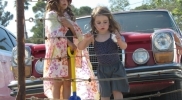


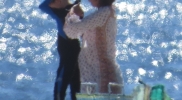
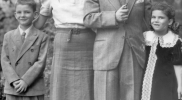
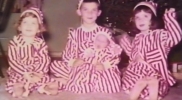

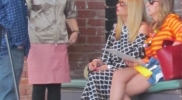


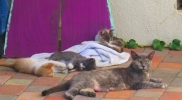

![[000015] [000015]](https://beforetheblog.com/wp-content/gallery/kids/thumbs/thumbs_000015.jpg)
